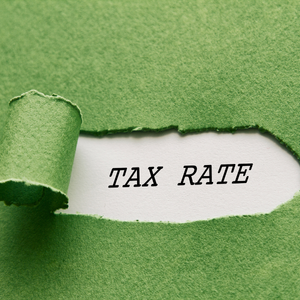
Selling your Saint Paul, MN, home is exciting, but homeowners must understand the capital gains tax. Often overlooked, this aspect of home sales can significantly impact your finances if not managed properly. Learn about Minnesota’s tax laws, exemptions, and how to reduce your liabilities to make smart financial decisions. Whether you’re selling your first home or are a seasoned property owner, understanding capital gains tax is crucial to protecting your profits and ensuring a smooth transaction.
Key Highlights
- Familiarize yourself with Minnesota’s tax regulations to minimize liabilities and optimize financial outcomes when selling your home.
- Understand capital gains tax to protect your profits and ensure smooth real estate transactions.
- Use strategic tax planning to reduce excessive tax burdens in Saint Paul.
- Leverage home sale exclusions and carefully time your sale to avoid substantial capital gains taxes.
- Consult financial planners and real estate professionals for guidance on market trends and tax regulations.
Understanding Capital Gains Tax for Home Sales in Saint Paul, MN
Selling a home in Saint Paul, MN, can have significant tax implications, so understanding capital gains tax is essential. This tax is applied to the profit earned from your sale, calculated by subtracting the home’s basis from the selling price. Federal capital gains tax rates vary based on your income, meaning your reported income can directly affect the taxes owed and your net proceeds.
Homeowners in Saint Paul must also consider Minnesota’s state-specific tax rules, which may differ from federal provisions. Being familiar with both federal and state requirements, including exclusions for primary residences, helps homeowners plan strategically, minimize tax liability, and maximize the financial benefit of their home sale.
| Aspect | Details | Impact | Federal Rate | Minnesota Rule |
|---|---|---|---|---|
| Income Levels | Varies by individual annual income | Affects the rate of capital gains tax applied | 0%, 15%, or 20% based on income | Taxed as ordinary income |
| Tax Exemptions | $250,000 for single filers, $500,000 for married couples | Reduces taxable portion of gains | Exempt limits apply | Minnesota generally follows federal exemption rules |
| Strategic Planning | Timing of sale and use of exemptions | Minimizes tax liability | Utilize exemptions effectively | Consider state-specific tax planning |
| Ownership & Use Test | Meets federal guidelines | Qualifies for federal and state exemptions | Applies exemption criteria | Reduces the taxable portion of gains |
This table provides a concise overview of capital gains tax considerations for homeowners in Saint Paul, MN, highlighting the importance of strategic planning to optimize profits and minimize taxes.
How Tax Rates Affect Your Home Sale Proceeds

If you’re selling a home in Minnesota, it’s important to know how the capital gains tax will affect your profits. To figure out how much capital gains tax you owe, you take the sale price and subtract the property’s basis. The rate you pay depends on how much money you make. People who own homes and make more money usually have to pay higher taxes. This is why it’s important to plan ahead to avoid paying more than you have to.
The federal tax rate on capital gains is 0% for people with low incomes and 20% for people with high incomes. Minnesota has its own state taxes in addition to federal taxes, which could make the total amount owed higher. Homeowners in Saint Paul who have lived there for at least two of the last five years can leave out up to $250,000 for single filers or $500,000 for joint filers, which can lower their taxable gains by a lot.
To pay less in taxes, think about when to sell, how to document improvements to raise your basis, and how to manage your income wisely. A tax professional can help you understand both federal and Minnesota-specific rules, make the most of exclusions, and plan the sale for the best financial results. Homeowners can take full advantage of Minnesota’s real estate opportunities and keep more of their profits if they plan ahead and avoid unexpected tax burdens
Exemptions and Exclusions for Homeowners
If you sell your home in Saint Paul, MN, you may have to pay capital gains taxes. However, knowing about available exemptions and exclusions can help lower your tax bill. Federal and state laws, like the primary residence exclusion, let qualifying homeowners leave out up to $250,000 of gain if they are single or $500,000 if they are married and filing jointly. Using these rules can make a big difference in how much of your home sale is taxable.
Knowing about these exemptions and planning your taxes carefully can help you keep the most money from a sale. Homeowners can lower their taxes and get the best financial results by keeping good records of improvements, timing their sale, and knowing the rules that apply to both the federal government and Minnesota.
Strategies to Avoid Capital Gains Tax on a Home Sale

One of the most effective ways to reduce capital gains tax in Saint Paul, MN, is by using the IRS home sale exclusion. Homeowners who have lived in their property for at least two of the last five years can exclude up to $250,000 of gain if single, or $500,000 if married filing jointly. Keeping accurate records of home improvements also increases your property’s basis, which lowers taxable gains.
Timing your sale strategically can further minimize taxes. Selling during a year when your income is lower or staggering sales across tax years can reduce the capital gains rate you face. Additionally, how parts of your home were used, such as a home office, may impact taxable gains, so proper planning is key. Using a capital gains tax calculator can help you estimate potential liabilities in advance and make smarter, more informed financial decisions when selling your property
Because federal and Minnesota state tax rules may differ, consulting a tax professional or financial advisor is highly recommended. Experts can help you maximize exclusions, plan your sale strategically, and ensure compliance, ultimately safeguarding your profits and minimizing tax liability.
Capital Gain Calculation
The basis of your home, which includes the original purchase price and any significant improvements that add value or extend its life, determines your capital gain when selling. The taxed capital gain is the difference between this adjusted basis and your home’s final sale price. The accuracy of detailed records of improvements and expenses can greatly impact your taxable gain.
Review federal and Minnesota state taxes. If ownership and use requirements are met, federal rules may allow exclusions of $250,000 for single filers or $500,000 for married couples. Understanding Minnesota and federal taxes is crucial because they may differ. Correctly calculating your gain and timing your sale can reduce taxes and maximize profits.
Example of Capital Gain Calculation
- Original purchase price: $300,000
- Improvements made: $50,000 (e.g., kitchen remodel, new roof)
- Adjusted basis: $350,000 ($300,000 + $50,000)
- Sale price of home: $500,000
Capital gain: $500,000 – $350,000 = $150,000
Since the homeowner is a single filer and meets the two-out-of-five-year ownership and use requirement, they can exclude up to $250,000 of gain from federal taxes. In this case, the entire $150,000 gain is excluded, so no federal capital gains tax is owed.
Note: Minnesota state taxes may still apply, as state rules can differ from federal exclusions. Planning the timing of your sale and accurately documenting improvements ensures proper calculation and helps maximize profits.
Essential Elements in Computing Sales Gains

To calculate the gain from selling your home, you must determine its correct basis, which includes the original purchase price plus significant improvements that increase value or extend its life. The accuracy of your reported gain depends on keeping detailed records of these expenses. Subtracting this adjusted basis from the final sale price yields the taxed capital gain.
How long you’ve lived in a home determines the federal capital gains tax. Homes that meet the two-out-of-five-year rule can exclude up to $250,000 for single filers and $500,000 for married couples from taxable gains. Minnesota state taxes may differ from federal exclusions, so it’s important to know both. Selling in a lower-income year can also reduce taxes.
Home offices and other business uses can affect taxable gains. Sales gains should be calculated accurately to protect your finances and comply with laws. Prepare well and consult tax professionals to maximize benefits and make your Saint Paul, MN, real estate transaction financially efficient.
Planning Your Move to Saint Paul, MN: Considerations and Tips
Saint Paul offers a unique blend of historic charm, vibrant neighborhoods, and a resilient real estate market. Whether you’re selling a home or buying a new property in the city, understanding local market trends and property values is essential for making informed decisions. Key factors such as home repairs, agent commissions, and applicable state and city taxes can significantly affect your financial planning when selling.
Proper home valuation is equally important to maximize your equity, which can be applied toward your next purchase. By familiarizing yourself with Saint Paul’s real estate trends, tax policies, and neighborhood characteristics, you can simplify your move and ensure a smoother transition into your new home.
The Financial Impact of Buying and Selling in Saint Paul, MN
Selling and buying a House in Saint Paul, MN, involves a range of complex financial decisions. Selling a house begins with setting a market-driven price less the possible expenses of repairs, agent commissions, and even taxes! A house valuation is conducted in order to price a house competitively to achieve market balance. This is to ensure that the equity collected is maximized to fund the next purchase. What is equally important is the Province tax and the Saint Paul tax because Real estate and tax policy knowledge are crucial in valuation analysis.
Purchasing another property in Saint Paul is an equally daunting task. Certain highly sought-after areas of the city are in the midst of a bidding war, which can result in extremely inflated property values. This is the reason an individual requires sophisticated knowledge of the market in order to time the purchase properly. Buyers also should never forget to factor in the additional expenses, such as property taxes, closing, and mortgage options, especially if financing is being leveraged, so the purchase is not a financial strain in the future. A purchase coordinated with lengthy tax financing can help in achieving a marginal saving for the buyer.
It is also crucial to note that in addition to the financial transactions, a payment for relocation, temporary accommodation, and adjustment to the lifestyle also adds a strain. A range of options is exercised by Saint Paul tax Real estate and financial market planners, which enables the relocation, covering the entire market, mortgage, lien, and even loan tax payment options. All these factors are streamlined so that the professional advice is optimal. If the steps to be taken are properly aligned with the time frame to be used, the situation can be win-win for both parties to the transaction.
Additional Strategies for a Smooth Real Estate Experience in Saint Paul, MN
- Research neighborhoods: Ensure the area fits your lifestyle, amenities, and commuting needs.
- Schedule inspections: Identify maintenance issues early to avoid surprises.
- Engage with the community: Connect with local groups for insider tips and neighborhood insights.
- Use virtual tools: 3D tours and virtual walkthroughs save time while giving a full view of potential homes.
- Consider energy efficiency: Upgrades can reduce heating and cooling costs in Saint Paul’s climate.
- Stay updated on local laws: Keep track of Saint Paul and Minnesota real estate regulations that may impact your transaction.
- Check school districts: For family homes, school ratings can influence property value and quality of life.
Implementing these strategies ensures a smoother, smarter, and more informed home-buying or selling experience in Saint Paul, MN.
Understanding capital gains tax after selling your Saint Paul home can help Minnesota homeowners make smart decisions. Understanding exemptions and how they apply to you is crucial. Consult a tax professional to optimize your strategy and reduce your tax liability. As always, being informed and prepared can improve your financial results. Ready to advance? Get our free Minnesota home sale profit guide today.
FAQs
What is the capital gains tax when selling a home in Saint Paul, MN?
Capital gains tax is levied on the profit made from selling a property. It is calculated by subtracting the property’s basis (purchase price plus improvements) from the selling price. This tax applies to your financial gains from the sale.
How can I minimize my capital gains tax liability when selling my home?
There are several strategies to minimize your capital gains tax:
- Use home sale exclusions: Live in your home for at least 2 of the last 5 years to exclude up to $250,000 (single) or $500,000 (married) from taxable gains.
- Time your sale strategically: Sell in a lower-income year to potentially qualify for a lower tax bracket.
- Track home improvements: Keep records of improvements to increase your property’s basis and reduce taxable gains.
What are the specific tax implications for Saint Paul, MN, residents compared to federal taxes?
In addition to federal capital gains tax rates, Minnesota has its own state tax rules that can impact your total tax liability. It’s essential to understand both state and federal regulations to optimize your tax outcomes when selling a property in Saint Paul.
How do I qualify for home sale exclusions?
To qualify for the home sale exclusions, you must have owned and lived in your home for at least two out of the past five years. This allows for tax exclusions of up to $250,000 for single filers and $500,000 for married couples filing jointly.
Why is consulting a tax professional important when selling my home?
Consulting with a tax professional ensures that you understand all applicable tax laws and exemptions, both federal and state. They can offer personalized strategies to reduce your tax liability and guide you through complex tax codes to optimize your sales profits.
Looking to sell your home and manage capital gains tax after selling a house? Whether you want to sell your Saint Paul, MN, house faster or work with cash home buyers in Minneapolis, Henry Home Buyer makes it simple. We offer fair cash offers, handle all the details, and ensure a quick, hassle-free sale. Contact us at (612) 430-8822 today for a no-obligation offer and get started!
Helpful Saint Paul Blog Articles
- Selling Your Home In Saint Paul, MN, Before Divorce
- Sell Your Home Needing Repairs Quickly in Saint Paul, MN
- Sell Your House At Auction In Saint Paul, MN
- Selling A House With Foundation Issues In Saint Paul, MN
- How To Sell Your Parents’ House In Saint Paul, MN
- For Sale By Owner Homes In Saint Paul, MN
- Selling Your Apartment In Saint Paul, MN
- Home Short Sale In Saint Paul, MN
- Saint Paul, MN Regulations On Unoccupied Homes
- Heir’s Consent For Estate Property Sales In Saint Paul, MN
- Can You Sell a House with Tenants in Saint Paul, MN?
- Taxes When Selling an Inherited House in Saint Paul, MN
- Capital Gains Tax After Selling Your Home in Saint Paul, MN
- Saint Paul, MN Neighborhood Map
- Saint Paul, MN Property Tax Rate
- Free Things to Do in Saint Paul, MN

